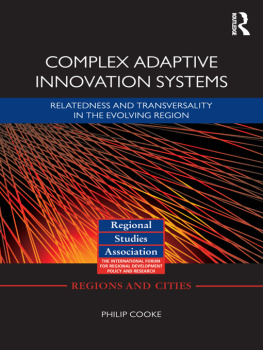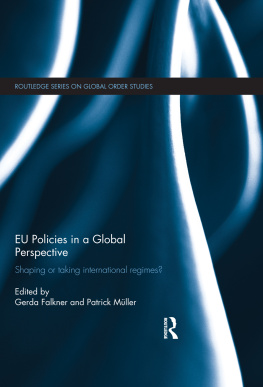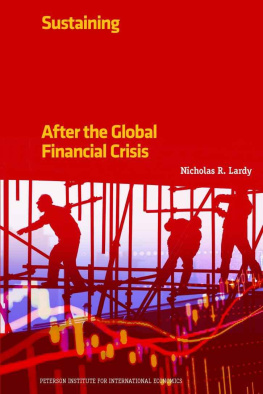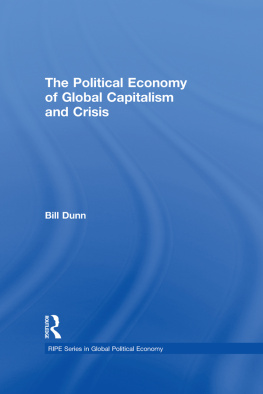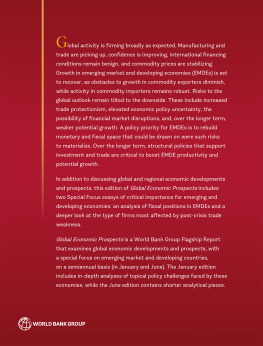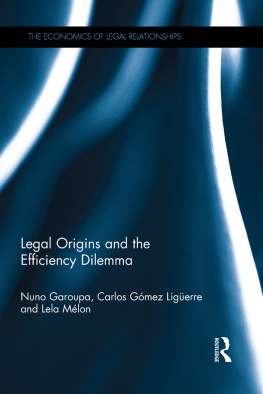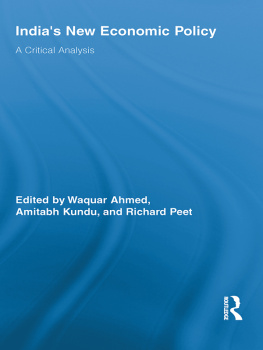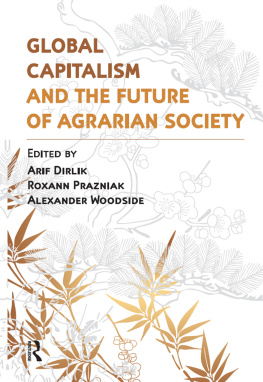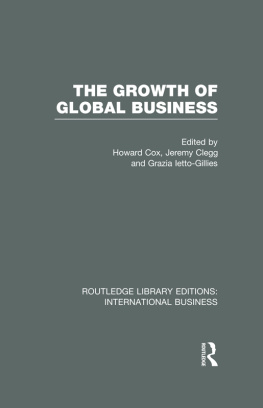Growth Cultures
Growth Cultures investigates the rapidly growing phenomena of biotechnology and sets this study within a knowledge economy context. Philip Cooke proposes a new knowledge-focused theoretical framework, the New Global Bioeconomy, against which to test empirical characteristics of biotechnology.
In this timely volume, Cooke unifies concepts from the sociology of science, economic sociology and evolutionary economic geography to focus on the problems and prospects for policy agencies worldwide trying to build biotechnology clusters. He develops a superior policy approach of thinking in terms of platforms that integrate proximities and pipelines, which will be of significant interest for the scientific and technological communities as well as economic development policy communities.
Growth Cultures will make fascinating reading for students, policy makers and researchers across management and business studies, innovation and knowledge studies, sociology, science and technology policy, applied economics, development studies and regional science.
Philip Cooke is University Research Professor in Regional Development and founding Director of the Centre for Advanced Studies at the University of Wales, Cardiff. He is Adjunct Professor in Spatial Planning at the University of Aalborg, Denmark. His research interests lie in studies of economics of biotechnology, regional innovation systems, knowledge economies, and policy actions for business clusters and networks. He is author of Knowledge Economies: Clusters, learning and cooperative advantage (Routledge, 2002).
Genetics and Society
Series editors:
Paul Atkinson, Associate Director of CESAGen, Cardiff University;
Ruth Chadwick, Director of CESAGen, Lancaster University;
Peter Glasner, Professorial Research Fellow for CESAGen at Cardiff University;
Brian Wynne, member of the management team at CESAGen, Lancaster University.
The books in this series, all based on original research, explore the social, economic and ethical consequences of the new genetic sciences. The series is based in the ESRC's Centre for Economic and Social Aspects of Genomics, the largest UK investment in social-science research on the implications of these innovations. With a mix of research monographs, edited collections, textbooks and a major new handbook, the series will be a major contribution to the social analysis of new agricultural and biomedical technologies.
Series titles include:
Governing the Transatlantic Conflict over Agricultural Biotechnology (2006)
Contending coalitions, trade liberalisation and standard setting
Joseph Murphy and Les Levidow
978-0-415-37328-9
New Genetics, New Social Formations (2007)
Peter Glasner, Paul Atkinson and Helen Greenslade
978-0-415-39323-2
New Genetics, New Identities (2007)
Paul Atkinson, Peter Glasner and Helen Greenslade
978-0-415-39407-9
The GM Debate (2007)
Risk, politics and public engagement
Tom Horlick-Jones, John Walls, Gene Rowe, Nick Pidgeon, Wouter Poortinga, Graham Murdock, Tim O'Riordan
978-0-415-39322-5
Growth Cultures (2007)
The global bioeconomy and its bioregions
Philip Cooke
978-0-415-39223-5
Local Cells, Global Science (2008)
Embryonic stem cell research in India
Aditya Bharadwaj and Peter Glasner
978-0-415-39609-7
Growth Cultures
The global bioeconomy and its bioregions
Philip Cooke
First published 2007 by Routledge
2 Park Square, Milton Park, Abingdon, Oxon OX14 4RN
Simultaneously published in the USA and Canada
by Routledge
270 Madison Avenue, New York, NY 10016
Routledge is an imprint of the Taylor & Francis Group, an informa business
2007 Philip Cooke
Typeset in 10/12pt Sabon by Graphicraft Limited, Hong Kong
Printed and bound in Great Britain by MPG Books Ltd, Bodmin
All rights reserved. No part of this book may be reprinted or reproduced or utilised in any form or by any electronic, mechanical, or other means, now known or hereafter invented, including photocopying and recording, or in any information storage or retrieval system, without permission in writing from the publishers.
British Library Cataloguing in Publication Data
A catalogue record for this book is available from the
British Library
Library of Congress Cataloging in Publication Data
Cooke, Philip (Philip N.)
Growth cultures : the global bioeconomy and its bioregions / Philip
Cooke.
p. cm.
ISBN 978-0-415-39223-5 (hard cover)
1. BiotechnologyEconomic aspects. 2. Pharmaceutical
biotechnologyEconomic aspects. I. Title.
TP248.23.C68 2007
338.476606dc22
2007001186
ISBN: 0-415-39223-3 (hbk)
ISBN: 0-203-08730-5 (ebk)
ISBN: 978-0-415-39223-5 (hbk)
ISBN: 978-0-203-08730-5 (ebk)
Contents
List of tables
List of figures
Preface
I first became seriously interested in biotechnology in about 1985, nearly ten years after it started in its modern, commercial guise with the formation of the first firm, Genentech, in California. There was a good deal of academic and social interchange among a community of radical regional political economists associated with the Union of Radical Political Economists (URPE) in the US and their counterparts, the Conference of Socialist Economists (CSE), especially its Regionalism group in the UK. The peculiarity of this community was, first, a shared interest in the theory of small-scale, collaborative, flexibly specialised and embedded industrial organisation. Authors such as Becattini (2001) had earlier pioneered research in Italy as he analysed the evolution of industrial districts. The second shared interest was in the prospect that new forms of high technology industry emerging first in California and, in the UK, the so-called M4 Corridor shared this Marshallian form of industrial organisation embeddedness, as it seemed to do rather than that of the characteristically large, corporate, multinational. The latter was clearly becoming almost hegemonic in those early years of modern globalisation. The conjoining interest was in the potential for liberated forms of work organisation that this more embedded model seemed to offer, compared to the rigid hierarchies and regimented forms of occupational position imposed by the corporate model. Avoiding the clutches of such behemoths as RCA seemed also to be a key motivation of the networked entrepreneurs of interest in these new agglomerations, a matter of no little extra interest to we observers, soon, we hoped, to be participant ones (Suchman, 2000).
In 1985, at Cardiff University, I managed to get a research council studentship from ESRC to work on a study of the emergent Californian retro-model of high technology capitalism. The researcher was one Graham Sewell, student deejay and serious Beastie Boys and Cramps fan, for whom months and years in UC Santa Cruz proved a fine platform for future academic success. His host was my late friend Rick Gordon, the classic Mustang-driving Australian and founder of the Silicon Valley Research Group. It was Rick who told us about biotechnology and its propensity to be as protean in economic impact as the semiconductor industry on which Silicon Valley had been built and which had so attracted the brightest young talents to study under the tutelage of other friends and acquaintances of the time. Notable among these were, of course, Ed Soja, Rebecca Morales, Allen Scott and Michael Dear in southern California, and Dick Walker, Ann Markusen, Peter Hall, Manuel Castells and Michael Burawoy in Berkeley. The rising stars included, mostly, economic geographers like AnnaLee Saxenian, Meric Gertler, Michael Storper, Erica Schoenberger and Amy Glasmeier among others. I was hosted by many of these kind people and was delighted to reciprocate. It was through Rick, the political scientist, though, that in 1987 Graham and I were invited to present our project's first biotechnology paper at Philippe Schmitter's then new Centre for European Studies at Stanford University. There I first heard the likes of Mark Granovetter and David Teece talking a more economic sociologically nuanced version of what we regional scientists and economic geographers, or in Manuel Castells case, urban sociologist had also been thinking and exploring. There I also met Nicola Bellini, shortly to become political adviser to the president of Emilia-Romagna in Italy, subsequently a long-term Pisa, Tuscany-based academic colleague, and expert on localised enterprise and innovation services, policies and institutions. In one way or another, all these thinkers and writers were influential upon me and a host of others, but to my surprise they were not, except for a few and later, interested in biotechnology. Rather it was ICT innovation from the silicon chip and its computing and software applications that, in technological terms, seemed then to hold for the majority the greatest interest.



